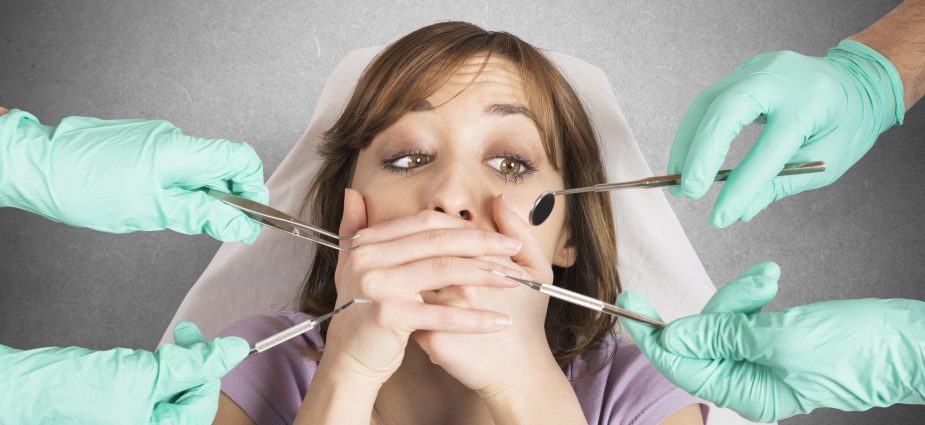SHARES

Most of us know that regular dental visits are a part of maintaining good oral health. Despite this, many of us avoid visiting the dentist regularly. Many actively avoid the dentist because of dental fear or anxiety. Avoiding dental care due to dental anxiety can be a barrier to achieving oral health.
What is Dental Anxiety?
Dental anxiety is more than just dental phobia. Anxiety is triggered by concerns regarding treatment cost of treatment, side effects, etc. It is not just limited to fear of the dental procedure.
When does dental anxiety develop?
Dental anxiety is not something that naturally develops, but is a learned behaviour, shaped by past experience. This could be our own individual experiences or by observing the experiences of others, such as a parent or sibling.
A history of near-drowning or sexual abuse has also been linked with this specific anxiety.
Previous traumatic dental treatment experience, lack of control, perceived negative behaviour of the dental clinician and/or painful dental treatment are common in the history of those with dental anxiety.
Who does dental anxiety affect?
In Singapore, dental anxiety affects about 1 in 5 people [Stenebrand, 2015]. It affects both children and adults. More than 20% of dentally anxious patients do not see a dentist regularly, and 9-15% of anxious patients avoid dentistry altogether.
Symptoms of dental anxiety?
People with dental anxiety may experience physical and psychological symptoms. They include sweating, racing pulse or palpitations, low blood pressure and fainting, upset stomach, crying, signs of panic, withdrawal, or using humour or aggression to mask anxiety. Anxious patients may also find it difficult to sleep the night before the appointment.
Anxious patients tend to routinely miss dental appointments, and may find it difficult to undergo even simple dental treatment.
How can we manage dental anxiety?
Talk to your dentist about the problem. Discuss with your dentist first before starting treatment. Depending on your needs, management includes psychological techniques, effective local anaesthesia, sedation and general anaesthesia.
Further Reading: Dental Phobia? No Worries, your Dentist can Help You Overcome
This article is contributed by Elite Dental Group.
For More Information, contact Elite Dental Group.
———————————————————————————————————————–
If you need to consult a dental surgeon:
Find, Call or Book an appointment with a Dental Surgeon in Malaysia, on GetDoc
Find, Call or book an appointment with a Dental Surgeon in Singapore, on GetDoc
Disclaimer
Important: The authors, reviewers, and editors of GetDocSays have made extensive and reasonable efforts to ensure that medical information is accurate and conform to the standards of the publication. They reflect the opinions and views of the contributors and not the publisher.
The information on this site is not professional advice nor is it to replace personal consultation with a physician, dentist, pharmacist, or other health care professional. The reader should not disregard medical advice or delay seeking it because of information published here.
by Jemima Joseph
Using words to create communities. Intrinsically passionate about people, music, and the arts. View all articles by Jemima Joseph.







